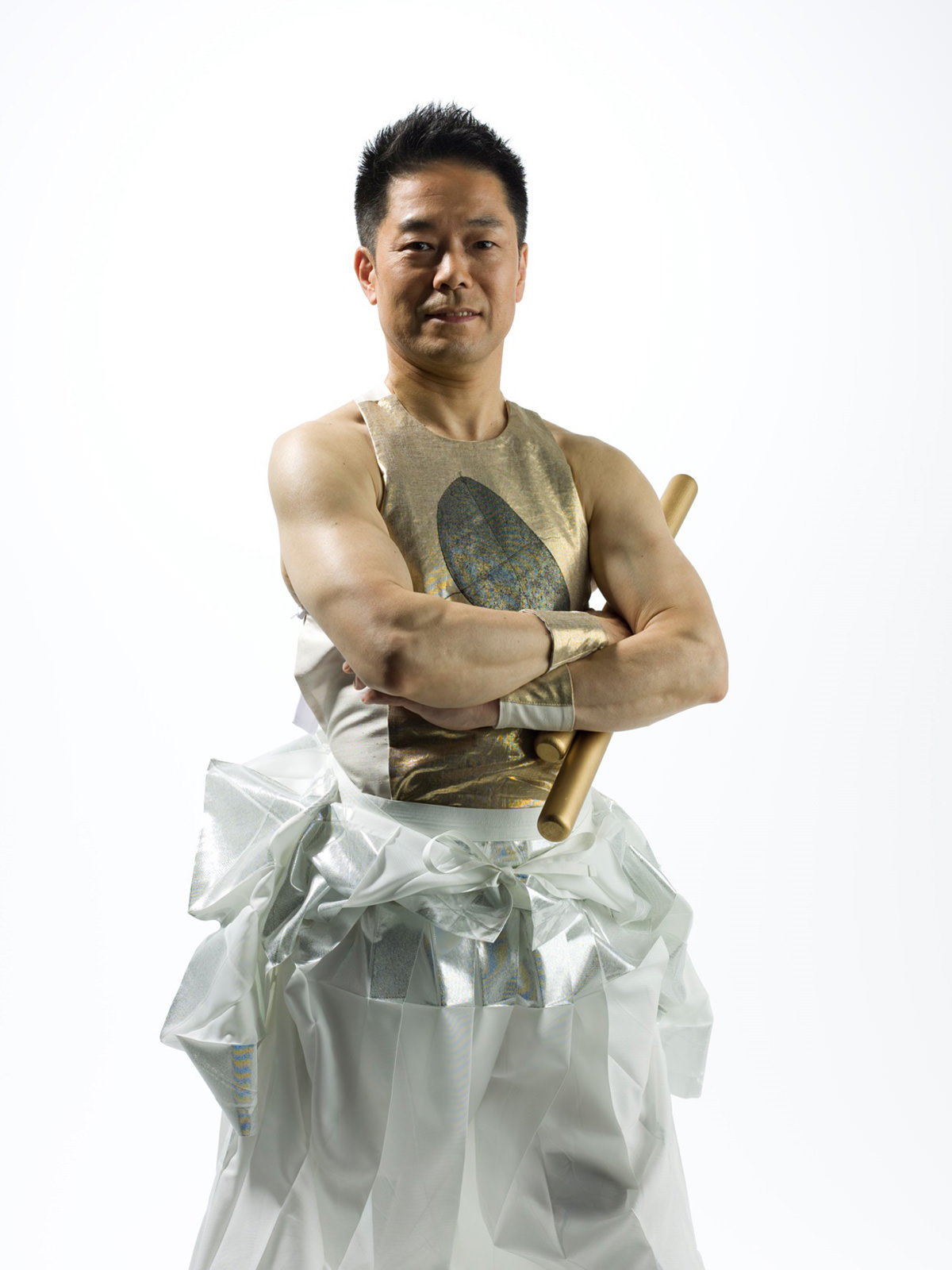
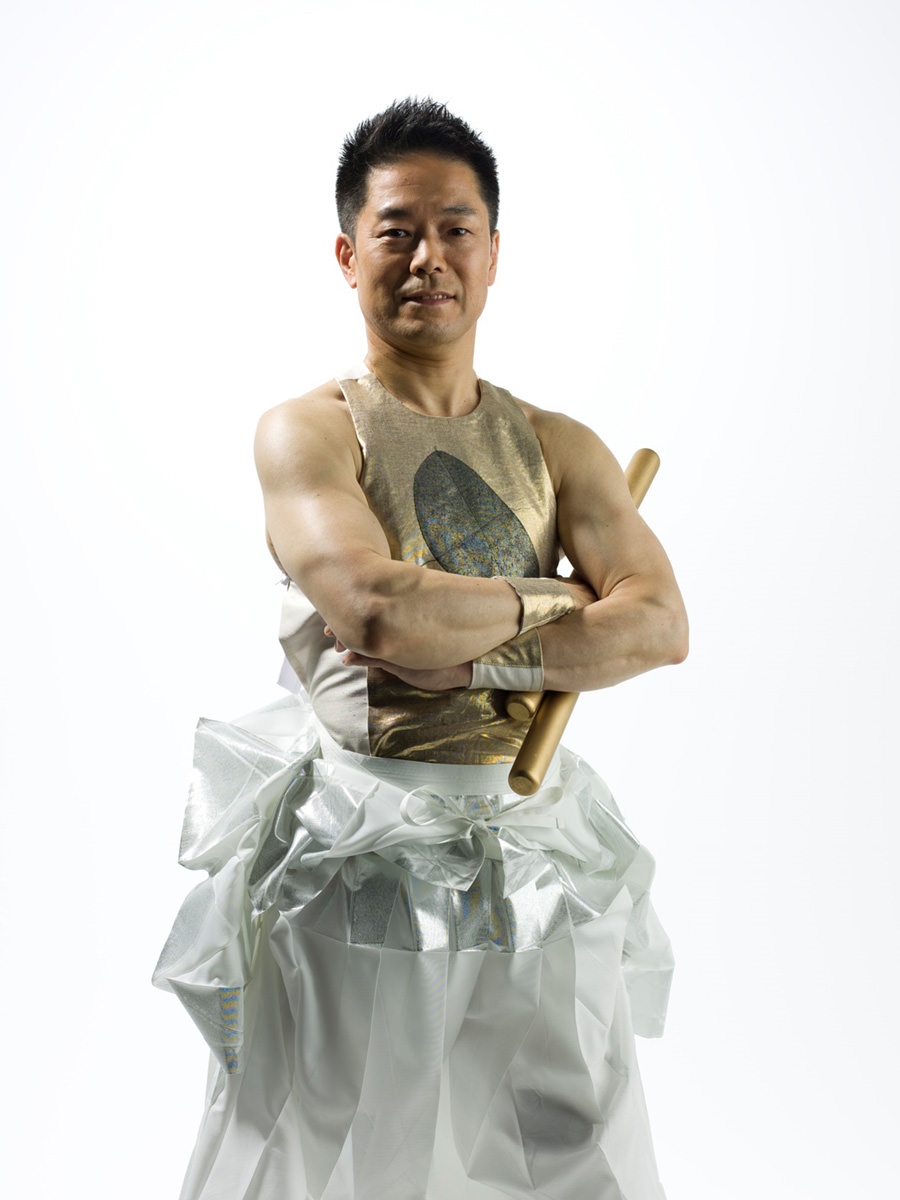
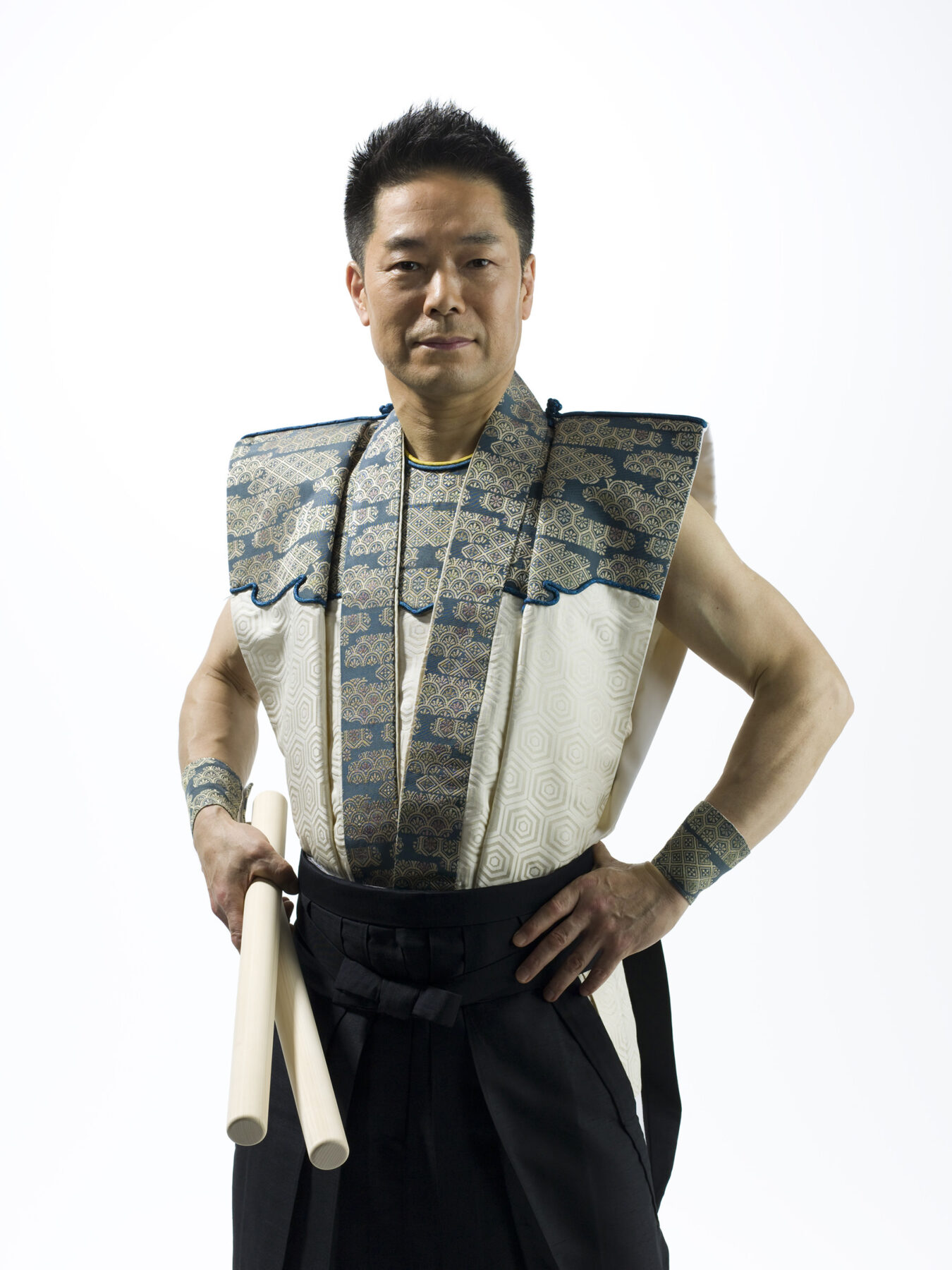
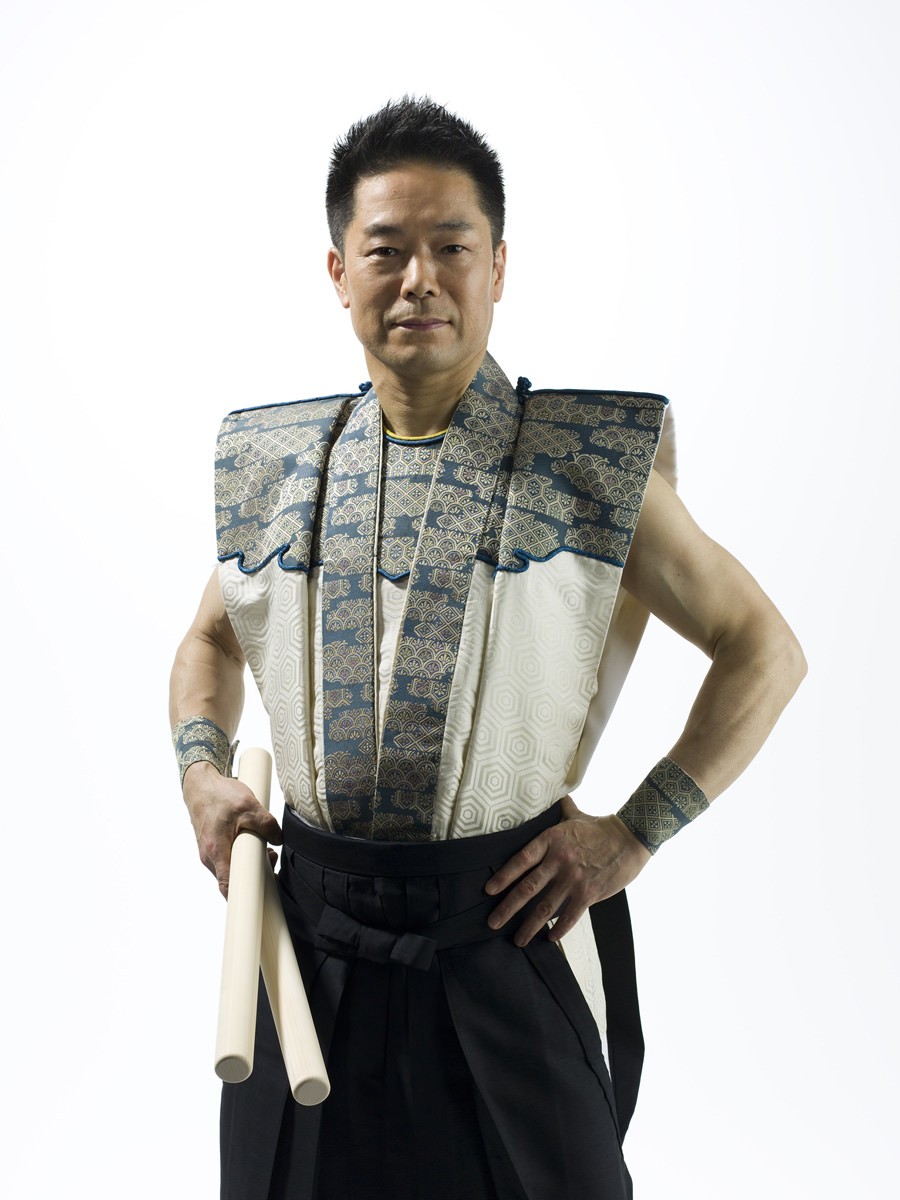
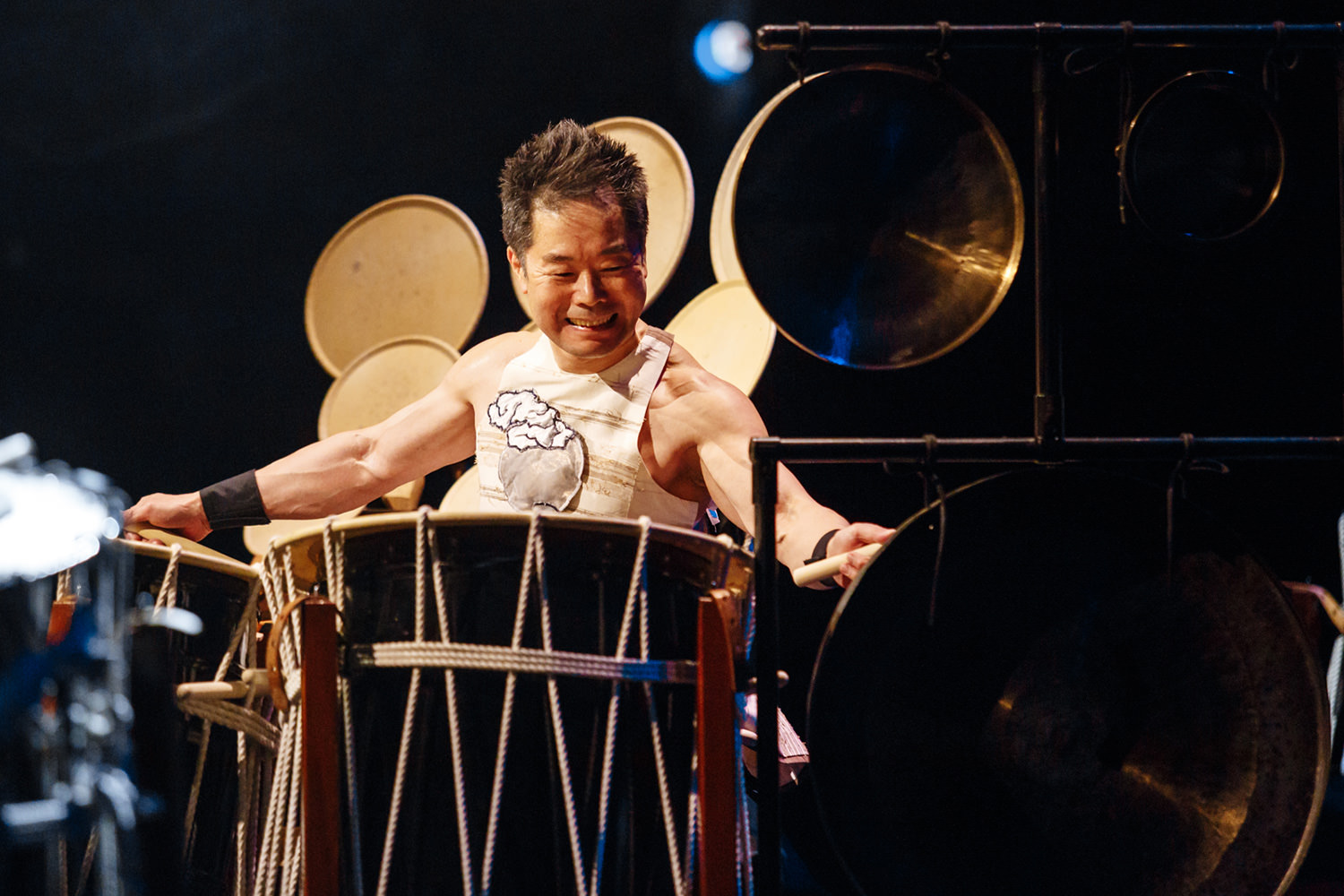
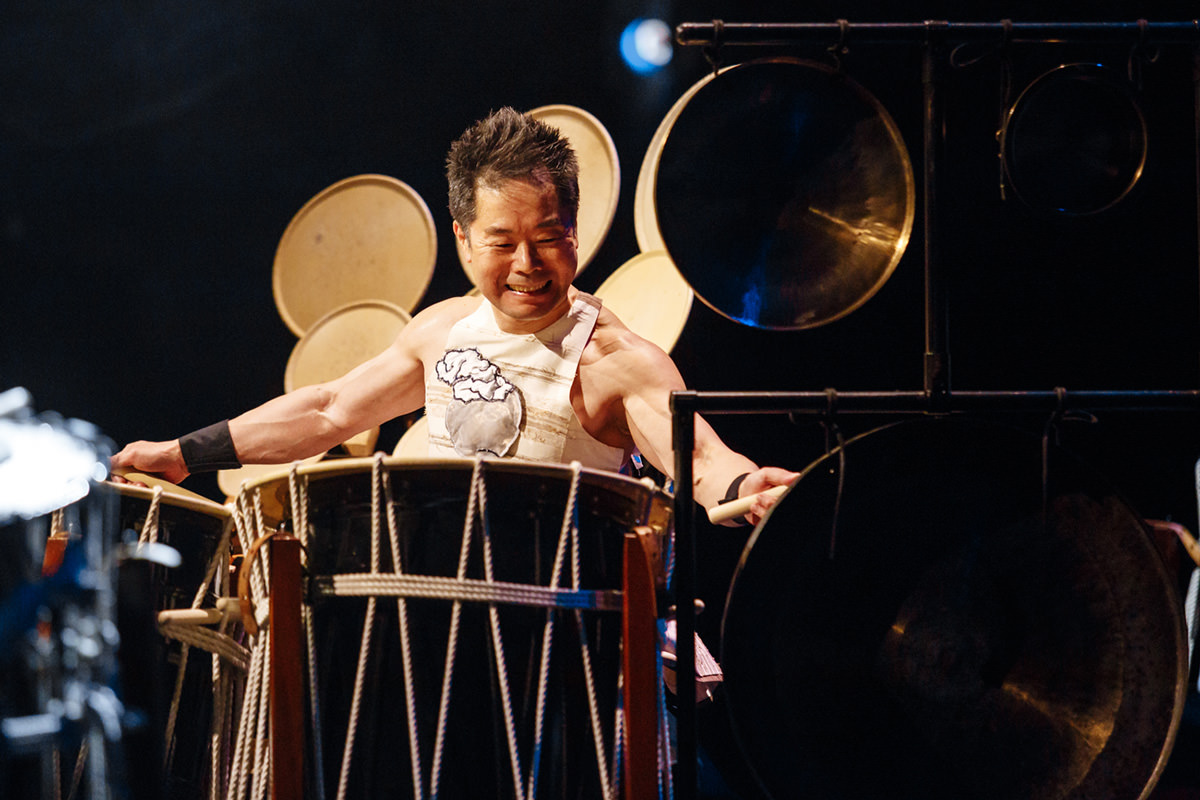
Eitetsu Hayashi
“He was the first to discover the artistic potential of Japanese taiko”
(The Japan Times)
He is Japan’s premier solo Taiko drummer. Born in Hiroshima, Japan. Eitetsu Hayashi started his Taiko carrier as a founding member and premier performer of the world-renowned groups "Sado Ondekoza" and "Kodo". He was the group’s soul figure and top player for ten years.A chance to opportunity to perform Maki Ishii’s Mono-Prism with the Boston Symphony Orchestra under Seiji Ozawa in 1975 marked a turning point in his life. It led to many invitations to join the world tours of some of the prestigious names in music, such as Hiroyuki Iwaki and the NHK Symphony Orchestra, Takashi Asahina and the Osaka Philharmonic Orchestra, all of which had won him critical acclaim. In 1981, he left Sado-Ondekoza to seek new expressions in music that would be unfettered by pre-set forms. He founded a new “Wadaiko” group, “Kodo”, of which he was director and performer. But he went independent the following year to continue with his search for innovative interpretations of the Japanese taiko drum. He gave his first solo recital in December the same year, and from this he began collaborations with artists and groups across the music spectrum: rock, jazz, modern music, folk music, etc. Thereafter, he went on to create a new method of soloing which requires techniques and physical stamina previously unknown in traditional Japanese “Wadaiko” playing. Using a unique combination of “Wadaiko” drums, he created ad performed original music in a countless succession of entirely new experimental musical endeavors.
In 1984, he made his debut with the orchestral work by Shuko Mizuno, Symphonic Metamorphosis Part 3, both as the first player and soloist of “Wadaiko” to perform in Carnegie Hall. Since 1986, Hayashi has been touring around the world with his taiko group or as a duo with the jazz pianist, Yosuke Yamashita. Wherever he went, he garnered rave reviews as well as the highest acclaim as the one and only taiko soloist in modern music history. In October 1998, he was the first Japanese taiko soloist ever to perform at the Moscow Tchaikovsky Hall with his concert, “Sen Nen no Kamoku (The Quiet Ages)”. His charismatic solo performance of Isao Matsushita’s Hi-Ten-Yu with the Berlin Philharmonic Orchestra conducted by Kent Nagano in June 2000 in Berlin’s Waldbühne wowed the audience of over 20,000, and was broadcast around the world.
In June 2001, he collaborated with the Korean percussion group, Kim Duk-Soo / Samul nori to present the first Japanese-Korean Music Festival. Its initial success led to two more festivals in Japan and Korea.
Since 1998, Hayashi has been composing new works and staging concerts inspired by other artists – whether in terms of their art form or their way of living – in what he calls “taiko theatre”.Such concert tours include Man Ray, The Wings of Flightless Birds which celebrated the art of Jakuchu Ito (1716-1800), and similarly themed concerts celebrating the art of Yajuro Takashima, Takumi Asakawa, Léonard Tsuguharu Fujita, etc. which were taken to all parts of Japan. The year 2007 saw him performing with the Tokyo Symphony Orchestra at the Suntory Hall, the Century Orchestra Osaka at the Hyogo Performing Arts Centre, and solo performances celebrating his 25th anniversary in taiko music, which was distinguished by the first ever arrangement throughout in a taiko concerto format, under the baton of Chikara Iwamura. He was commissioned by the National Theatre of Japan to produce, arrange and perform a trilogy of concerts entitled A Thousand Drums, which took three years to realize and were staged in 2008.In December 2010, he staged and performed the concert Gassan II at the Suntory Hall, which was the first solo recital he gave in eleven years, and lasted for more than an hour of taiko music using an eclectic selection of Japanese taiko drums. The concert also featured the violinist, Iwao Furusawa as his special guest. A live recording was made and later released as DVD.
Currently, apart from giving performances, Hayashi is actively participating in a wide range of creative projects, such as producing celebration activities, films, scoring for plays, commissioning new works for taiko, and acting as music director, etc. Among his writings is the book Ashita no Taiko-uchi e (To the Taiko Players of Tomorrow).
His performance has been recognized reliably from Rene Martin who is the artistic director of La Folle Journee and invited to the festival in Nantes, Tokyo, Ekaterinburg and Warsaw.
He has created a new method of soloing “O-Daiko” which requires techniques and physical stamina and original performance style using a wide variety of taikos, which was previously unknown in traditional Japanese Taiko playing. 2016 was the 45th anniversary of Hayashi’s performing activities.
He joined a 2020 taiga drama (Japanese historical drama series), “Kirin ga Kuru (Awaiting Kirin)”, as a taiko soloist of the main theme music. His taiko performance colored the drama splendidly.
< Records of Award >
1997 The 47th Education Minister’s Art Encouragement Prize
2001 The 8th Japanese Traditional Culture Promotion Prize
2005 The Soroptimist Japan Foundation “Sen Kayoko” Prize
2013 Shobara-shi citizen honor Prize (Hiroshima)
2017 The 38th Matsuo Prize of Entertainment
- Official Web Site
- eitetsu.net
- AppleMusic
- Eitetsu Hayashi
- Spotify
- Eitetsu Hayashi